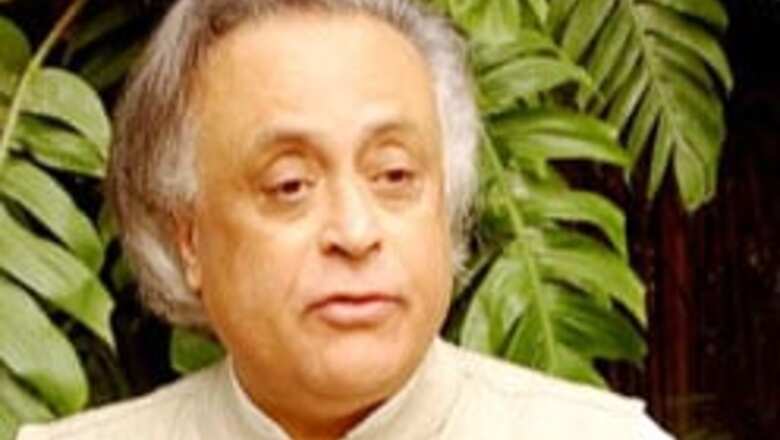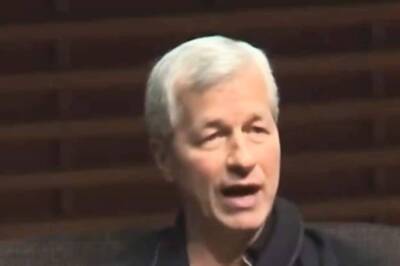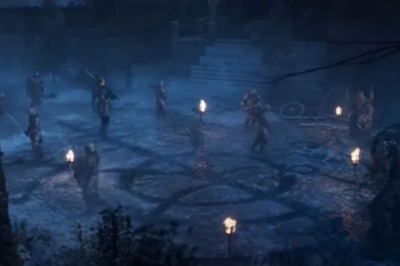
views
Copenhagen: Last-minute attempts to rescue the climate summit continued on Tuesday without any sign of a breakthrough. Environment ministers from over 100 countries now have till Thursday morning to cobble together a Copenhagen Agreement, but now no one expects anything more than a patch-up job.
Denmark's Environment Minister, Connie Hedegaard, has formed five small groups to sort out the five "crunch issues" at this summit, as she put it:
* Improving the targets to be set by developed countries to reduce their emissions of greenhouse gases (GHG) that are causing climate change;
* The mitigation actions of developing countries;
* The long-term finance to be provided by rich nations so that poor countries can cope with climate change effects;
* How to deal with emissions caused by the aviation and shipping industries; and
* Special circumstances of some countries (such as Russia) in relation to mitigation.
Each group is co-chaired by a minister from a developed and a developing country in an effort to sort out the main problem, the anger of developing countries at what they see as the foot-dragging of industrialised nations.
India's Environment Minister Jairam Ramesh made it clear that there would be no treaty at this summit when he said: "This conference must make it clear that negotiations towards legally binding treaties will continue in 2010".
Hedegaard accepted that there was a "discrepancy between citizens' concerns and calls for action and what they hear coming out of our conference".
She claimed that there had been progress, "but it's very clear that ministers have to work very hard in the next 48 hours. There are many major obstacles."
UN Framework Convention for Climate Change (UNFCCC) Executive Secretary Yvo de Boer also said: "We've seen significant progress but we haven't seen enough; there's enormous ground to be covered."
Referring to representatives of 192 countries gathered here, de Boer added: "You can lead a horse to water but you can't make it drink. We've brought 192 horses to water."
His words reflected the frustration as the climate summit threatened to collapse repeatedly during intense closed-door negotiating sessions, with rich nations sticking to their point that they would not do anything more to avert climate change unless emerging economies agreed to international inspections of their own actions.
This was rejected once more by India, China, Brazil and South Africa, whose environment ministers shared a podium to indicate that their BASIC group was now a reality.
Ramesh said: "We are coordinating between ourselves on the hour and we are continuing to resist pressure to hijack this conference."
"We must continue to work under the Kyoto Protocol (the current treaty to tackle climate change) and the Bali Action Plan" finalised two years ago.
He said the BASIC countries were working together with the Group of 77 and especially the group of African countries that had repeatedly threatened to walk out of the summit. "We are in complete agreement with them."
But the negotiations kept going backwards, with six new draft treaties presented overnight. Months of meetings will follow if all of them are to be considered.
The US is still refusing to make any commitment unless emerging economies "come on board" for international scrutiny, as US delegation leader Jonathan Pershing put it. That remained the main issue holding up a Copenhagen Agreement, though there were plenty more.
The least developed countries, led by the group of African nations, are objecting to attempts by rich nations to bury the Kyoto Protocol, the current global treaty to fight climate change.
The Alliance of Small Island States (AOSIS) continues to be deeply unhappy because bigger nations are working towards a goal of limiting global temperature rise to two degrees Celsius. They are losing their coastlines and sometime entire islands with the current temperature rise of 0.87 degrees, and want the world to stick to a 1.5-degree cap.
None of these issues has been resolved. Though negotiators working under the various groups of the UNFCCC have also produced drafts of what can potentially go into a Copenhagen Agreement, they are so full of bracketed text as to be meaningless. The dreaded square brackets in a UN document indicate where countries have failed to agree.
For example, a crucial sentence of the draft text on long-term cooperative agreement to fight climate change says rich countries should cut their GHG "emissions by [at least 25-40] [in the order of 30] [40] [45] percent by 1990 levels by 2020". All these figures are now up to negotiation, which is at the heart of the disagreement anyway.
"This is not going to get us anywhere," a senior member of the Indian delegation told IANS, speaking on condition of anonymity as he is not authorised to speak to the media. "Now the Copenhagen Declaration will have to come from the top, from the heads of state. We negotiators have failed."
Two years back, the Copenhagen summit was supposed to be the deadline by which a legally binding international treaty to tackle climate change would be ready for signatures. But now the best observers hope for is a non-binding political declaration of intent.

















Comments
0 comment